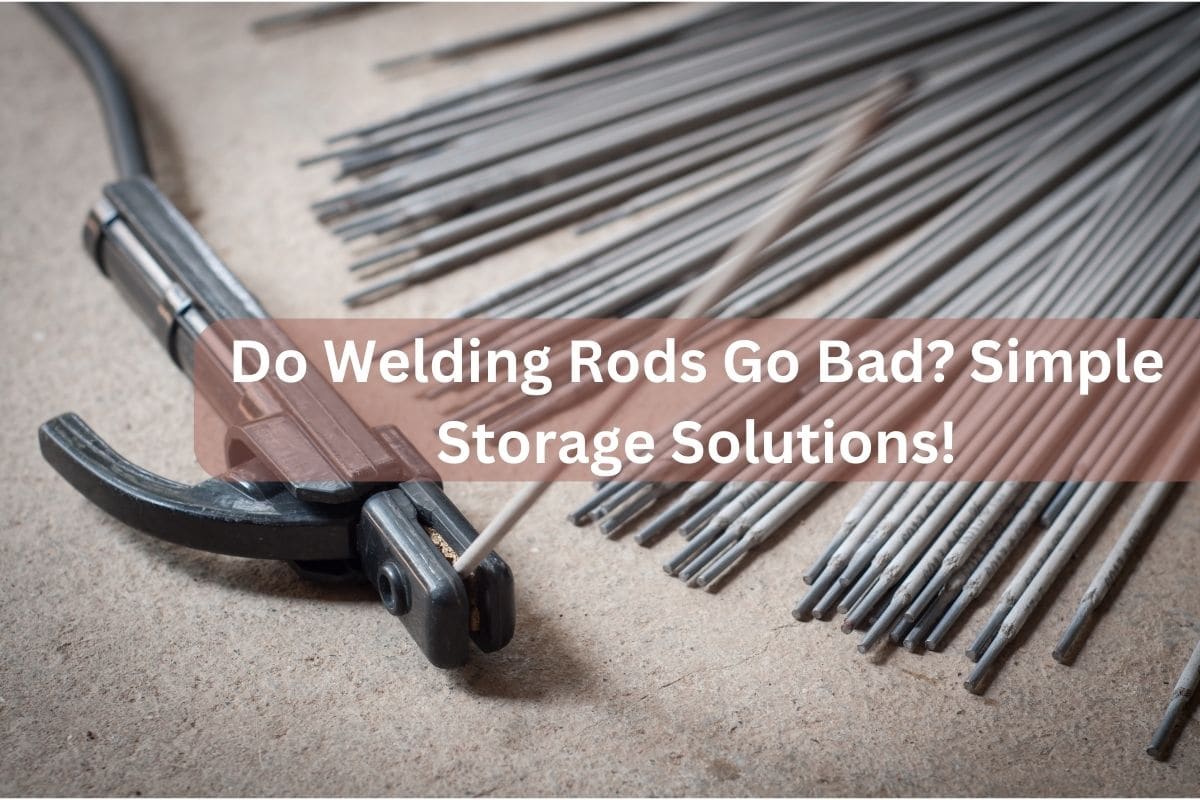Have you ever stumbled upon an old set of welding rods in your garage and wondered, Do welding rods go bad? It’s a question that’s more important than you might think. Let’s dive in.
Understanding Shelf Life and Deterioration
The longevity of welding rods can be compared to the freshness of food items in your pantry. While some might last ages, others can spoil quickly, especially when not stored appropriately.
Shelf Life Variances
Much like certain foods have recommended best-by dates, welding rods come with their own lifespan.
But do welding rods go bad purely based on age?
Not exactly. While some welding rods can serve you diligently for years, others might give up in just six months.
This inconsistency arises from the storage conditions rather than the mere passage of time.
It’s essential to consider the environment they’re in to ensure they last as long as possible.
The Moisture Culprit
Imagine trying to light a wet matchstick; it just doesn’t work. Similarly, moisture is the nemesis of welding rods. Wet electrodes can lead to a multitude of problems like unstable arcs, spatters, and more.
If you’re wondering if welding rods go bad in damp conditions, the answer is a resounding yes.
The next time you’re tempted to weld with a wet flux, think again. You’re likely introducing defects such as porosity, roughness, and even cracking into your weld.
Tell-tale Signs
When inspecting your rods, keep an eye out for certain indicators of deterioration.
If the flux on your rod has softened or you notice a powdery residue, it’s an undeniable sign of the rod’s compromised quality.
This is the welding world’s way of showing you that something’s amiss, much like milk going sour. Recognizing these signs early can help ensure you’re always working with the best materials.
Read Also : What is a Coded Welder? Perfect Starting Point Here!
How Moisture Affects Different Rods
Understanding how different welding rods respond to moisture is akin to knowing that certain foods spoil faster when left outside the fridge. Here’s a closer look:
7018-welding rod
The 7018-welding rod is like that gourmet cheese you splurge on – it’s sensitive.
Highly susceptible to moisture, these rods need constant warmth. When exposed to moisture, their performance can dip significantly.
If you’ve ever wondered, Do welding rods go bad if not stored appropriately?, the 7018 serves as a perfect example.
Ensuring they are kept warm, especially in rod ovens, is paramount to maintaining their effectiveness and ensuring quality welds.
6013-welding rod
On the flip side, the 6013-welding rod is a bit more forgiving. Think of it as the sturdy canned goods in your pantry.
While it’s true that they might perform slightly better with a touch of moisture, leaving them in overly damp conditions isn’t advised either.
The balance is crucial here. While it’s less sensitive than its 7018 counterpart, it’s always best to prevent unnecessary exposure to moisture.
Low Hydrogen vs. Non-Low Hydrogen
Now, diving deeper into the world of welding rods, we have the low hydrogen and non-low hydrogen categories.
The low hydrogen ones, such as E7108, are super sensitive to moisture, much like certain delicate pastries. In contrast, non-low hydrogen electrodes like E6010 and E7014 strike a balance.
They require some moisture to function optimally, but drown them, and you’re in trouble.
So, if you’re pondering, Do welding rods go bad based on their type?, the answer is intricately tied to their moisture requirements.
Storage Tips to Extend Rod Life
Like a chef who knows the right temperature to keep ingredients fresh, a welder must understand the best storage practices for their rods.
Pick the Right Spot
The location of storage plays a crucial role. Think about it: would you store ice cream next to your oven? Probably not.
Similarly, welding rods need a dry environment to thrive. If you’ve often wondered, Do welding rods go bad quickly?, the storage condition could be the reason.
Investing in rod ovens or specialized cabinets is not just for the professional welder but ensures you’re taking the best care of these essential tools.
Such storage equipment is designed to combat moisture, ensuring rods stay in optimal condition for when you need them.
Watch the Clock with 7018
The 7018-welding rod is a bit of a diva. Once it steps out of its cozy rod oven, the countdown begins.
Much like how some foods have a limited time before they start losing their freshness after being taken out of the fridge, the 7018-welding rod should ideally be used within 4 hours.
By adhering to this time frame, you ensure the rod remains moisture-free and performs at its peak. This is a clear answer to the frequently asked question, Do welding rods go bad if left out for long?
Reviving the Fallen
Accidents happen. Maybe the storage cabinet wasn’t sealed properly, or perhaps there was unexpected moisture in the environment.
Whatever the cause, if you find some rods have been compromised, don’t be quick to discard them. Depending on their type, a re-drying process might be all they need to bounce back.
It’s similar to reheating leftover food to enjoy it once more. However, always ensure you’re following the correct re-drying conditions based on the specific electrode type.
Read Also : What is a Groove Welding? Essential, Informative Breakdown
What About Welding Wires?
Much like their rod cousins, welding wires aren’t immune to damage from moisture. Here’s a tidbit:
- Ensure they’re stored under proper conditions. A stitch in time saves nine.
- If they get damaged, look into re-drying them. The exact conditions will vary based on the wire type, but it’s worth a shot.
So, Do Welding Rods Go Bad?
There you have it – a deep dive into the question, Do welding rods go bad? Proper care and storage can make all the difference in the world.
Remember, the aim is to ensure your rods and wires perform at their best when you need them.
Have any tips or experiences to share? Or perhaps questions on other welding essentials?
Drop a comment below. We’d love to hear from you and keep the conversation going!


